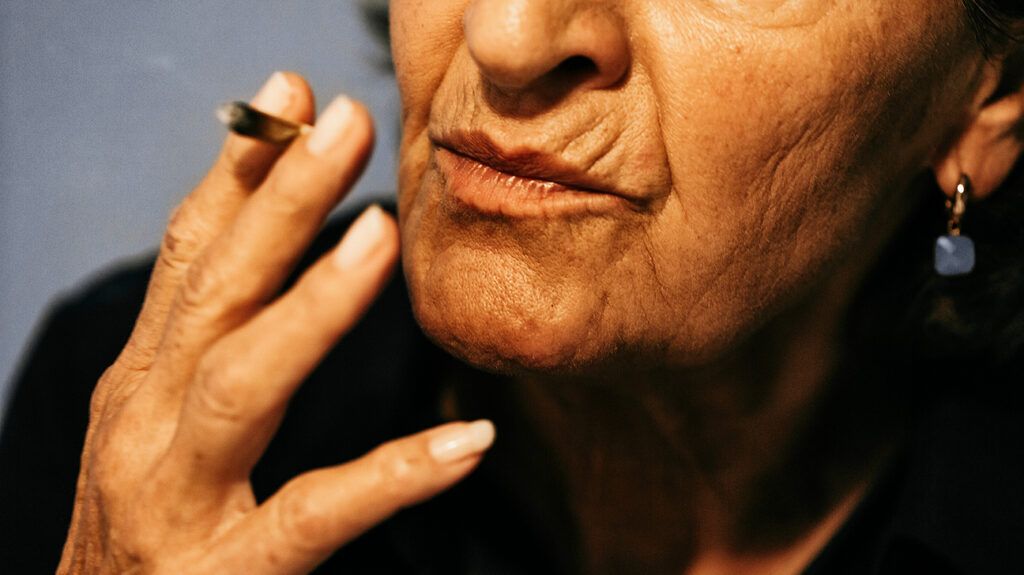There is little official guidance on using cannabis after surgery. Research on the effects of cannabis on surgery, anesthesia, and surgical recovery lags behind its use. For this reason, most surgeons recommend avoiding it before surgery and sometimes after.
After surgery, the risks of cannabis are unclear, but it may increase the risk of vomiting or nausea or require more medication for someone to manage their pain.
People who use cannabis may be reluctant to tell their healthcare professional about their use, particularly if the drug is illegal in their region. However, doctors are not police officers and can offer specific, personalized advice on the risks of cannabis when recovering from surgery.
If a person feels they cannot stop using cannabis, their qualified healthcare professional may offer additional medications or treatments to ease withdrawal and addiction.
This article examines what happens to the body if someone smokes after surgery and whether it is safe to do so.

In almost all cases, a person has the right to make their own medical decisions. So, an individual who has had surgery can smoke weed as long as they are not staying in a hospital where safety rules prevent it.
However, little
Moreover,
For this reason, most qualified healthcare professionals recommend avoiding cannabis in the days surrounding surgery.
The risks of smoking cannabis after surgery are not fully certain, given that very little research has investigated the subject.
A
Before surgery, cannabis can increase airway difficulty and require anesthesiologists to use more anesthesia.
The study found contradictory results regarding its effect on blood clotting, with data suggesting that it could increase blood clots and decrease them. Both could be potentially dangerous, with the former increasing the risk of embolism and the latter increasing the risk of bleeding.
According to the American College of Surgeons, cannabis use has links with a greater need for pain medication and anti-nausea medication following surgery.
Research has not pointed to any specific benefits of smoking cannabis after surgery, but the potential medical benefits of cannabis
- improve sleep
- reduce pain or anxiety
- reduce complications of other medical conditions, such as cancer-related nausea
However, this is speculative, since recent research has not assessed the potential benefits.
For habitual users, using cannabis after surgery may reduce the risks of unpleasant withdrawal.
Some of the risks of smoking weed before surgery may be long term. Research, for example,
Drawing on data from a 2018 study, the American College of Surgeons recommends quitting weed at least 72 hours before surgery. People with a history of addiction or at a high risk of withdrawal may benefit from abstaining earlier so that they do not experience withdrawal while recovering from surgery.
According to a
However, this association is complicated.
Cannabis could also alter the body’s pain perception in other ways, increasing post-operative pain. In people with addictions, withdrawal could intensify pain perception.
Many different explanations exist, and each of these explanations may play a role. Because healthcare professionals do not yet know why there is an association between cannabis and pain, they usually advise avoiding the drug.
People experiencing pain need to tell their healthcare professionals who can help them find the right pain relief.
There is a lack of research on cannabis use and safety after surgery, particularly in people with addictions and those who use cannabis for medical reasons. This means a qualified healthcare professional cannot confidently advise on what level of cannabis is safe or when people can use it again.
Still, it can be difficult to quit using cannabis, especially if a person uses it to control anxiety or other medical symptoms. Withdrawal symptoms can also make surgical recovery more difficult. So, it is important to discuss the risks and benefits with a qualified healthcare professional and any harm mitigation strategies.
If a qualified healthcare professional cannot provide guidance, a person needs to consider getting a second opinion from another healthcare professional who is knowledgeable about cannabis. People with a medical cannabis prescription need to consult the qualified healthcare professional who authorized the recommendation.
